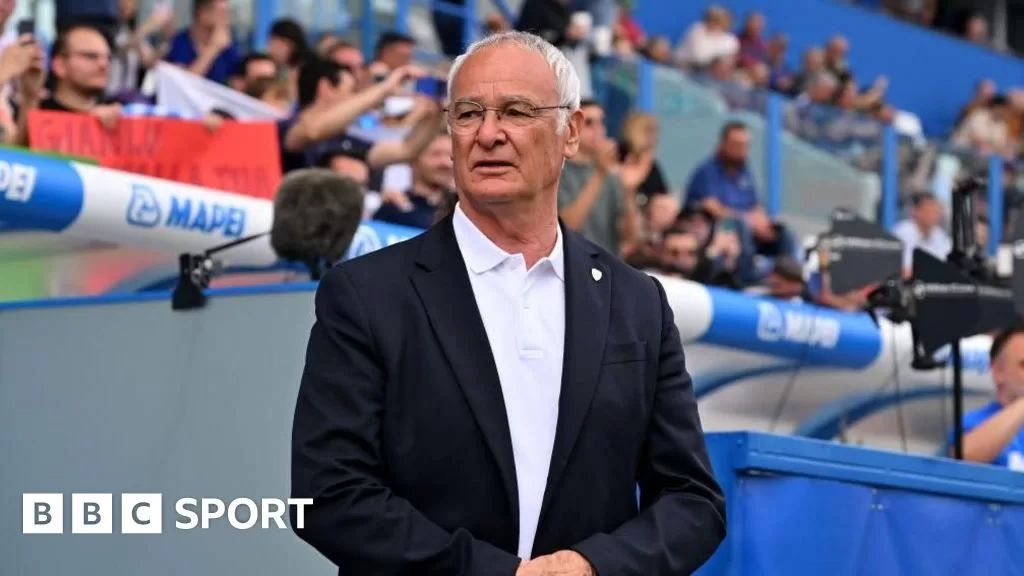The decision to hire Juric in the first place only served to highlight the lack of a clear sporting strategy.
When the Friedkins arrived, their decision to bring in Jose Mourinho as manager won them plaudits. A proven winner and a man capable of capturing global interest, Mourinho would satisfy both commercial and sporting needs.
The Stadio Olimpico was sold out for 43 consecutive games and the fanbase fell in love with the Portuguese who led them to back-to-back European finals.
However, Roma failed to prepare for what was to come after Mourinho. When he was sacked, the fans were furious and the decision to hand the reins to Daniele de Rossi seemed a way to placate supporters rather than to serve a long-term vision.
The former captain of the side understands the club and the culture but had a different playing style and little experience. The decision to then extend his contract before the summer raised a few eyebrows.
Investing more than 100m euros (£83m) in summer transfers, the Friedkins sought to support De Rossi’s tactical vision and squad requirements.
Dismissing him only four weeks into the season remains a hasty and bewildering decision – but to then entrust the squad of players to Juric, a man with an entirely different playing philosophy, emphasised the lack of forward planning.
Juric predictably failed. He not only failed to transmit his ideas but the players were visibly sad, unhappy or overlooked.
Spare a thought in particular for Germany centre-half Mats Hummels, who joined Roma on a free transfer in the summer.
He had spoken of growing up watching Francesco Totti and De Rossi and his excitement to be training under the latter – only to watch on from the sidelines as Juric consistently overlooked him, choosing to play a midfielder at the back rather than the Champions League finalist.
“We are big believers in stability and culture,” said Dan Friedkin in his first official interview four years ago.
“This is important in our existing businesses, and it’s critically important in football. We try to identify, and more importantly support, strong management.”
The problem at Roma is no-one quite understands who is calling the shots.
The club are still without a CEO after Lina Souloukou resigned from her role, while Frenchman Ghisolfi – the man who stepped up to absorb fans’ ire and acknowledge mistakes – seems to have no power to make decisions, leaving the Italian media to debate how long he will last in his role.
It does not help that he only speaks in French at a club obsessed with its history and traditions.
